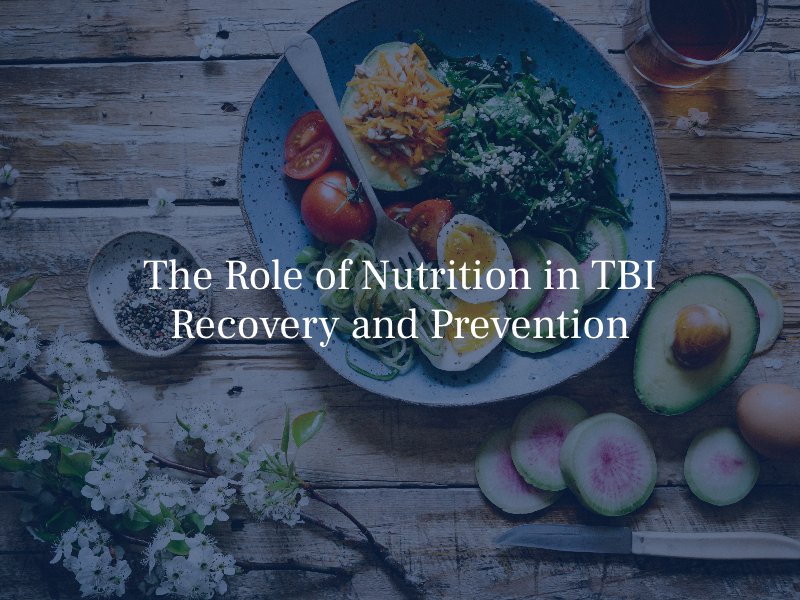The Role of Nutrition in TBI Recovery and Prevention
May 20, 2023 Posted In Brain Injuries
While medical intervention is crucial in TBI treatment, nutrition also plays a surprisingly significant role in both the recovery and prevention of such injuries.

The Role of Nutrition in TBI Recovery
A well-balanced and nutrient-dense diet can support brain health, facilitate healing, and improve overall recovery outcomes. Here are some ways in which nutrition impacts TBI recovery:
Reducing Inflammation
One of the primary concerns following a TBI is inflammation, which can exacerbate brain damage and impair recovery. Nutrients with anti-inflammatory properties, such as omega-3 fatty acids found in fatty fish, walnuts, and flaxseeds, can help reduce inflammation and support the brain’s ability to repair itself.
Supporting Brain Function
TBI can disrupt various brain functions, such as cognition, memory, and mood. Nutrients like B vitamins, particularly B12, help maintain optimal brain function. Sources of B12 include fish, eggs, dairy products, and fortified cereals. Additionally, antioxidants in fruits and vegetables, such as berries, leafy greens, and colorful produce, help protect brain cells from oxidative stress and enhance cognitive abilities.
Promoting Neuroplasticity
Neuroplasticity refers to the brain’s ability to reorganize and form new connections after injury. Certain nutrients, such as magnesium, zinc, and vitamin D, have been shown to support neuroplasticity and aid in the recovery of brain function. Foods rich in these nutrients include nuts, seeds, whole grains, dairy products, fish, and sunlight exposure for vitamin D synthesis.
Supports Gut Health
The gut-brain connection is increasingly recognized as an important factor in brain health and recovery. A healthy gut microbiome, which can be nourished through a diet rich in fiber, fruits, vegetables, and probiotics (found in fermented foods like yogurt and sauerkraut), may positively influence brain function and overall well-being.
Energy Production
Following a TBI, the brain requires a significant amount of energy to recover. Complex carbohydrates, healthy fats, and lean proteins can provide sufficient calories to meet the increased energy demands and aid in the repair and regeneration of brain cells.
The Role of Nutrition in TBI Prevention
While proper nutrition cannot directly prevent traumatic brain injury (TBI), it can contribute to overall brain health and reduce the risk of certain conditions that may increase the likelihood of experiencing a TBI. Here are some ways in which nutrition can help indirectly prevent traumatic brain injury:
Maintaining Brain Health
A well-balanced diet that includes a variety of nutrient-rich foods supports overall brain health and helps maintain cognitive function. Furthermore, incorporating foods high in antioxidants, omega-3 fatty acids, and vitamins and minerals can enhance brain resilience and reduce the severity of potential injuries.
Promotes Bone Health
Strong bones are vital in preventing TBI caused by falls. Adequate calcium and vitamin D intake is essential for maintaining bone health and reducing the risk of fractures. Dairy products, leafy greens, fortified plant-based milk, and exposure to sunlight are excellent sources of these nutrients.
Supports Muscle Strength and Balance
A diet that includes sufficient protein, vitamins, and minerals helps maintain muscle strength and balance. Strong muscles and good stability can reduce the risk of falls, which are a leading cause of TBIs.
Our San Bernardino traumatic brain injury lawyers are available to help you with your case.